Do we need field teaching?
[There will be a time after the current CoV crisis when we will be able to move freely and jointly again.]
Biology is the science of life, life is happening “out there”, and yet education in the field makes up just a tiny fraction in the curricula of most biology studies, if included at all. Could field courses even be skipped entirely, with all the information from the internet at the tips of our fingers in seconds? Or are today’s biology students seriously missing out on one of the most important experiences in studying biology? We were interested in learning what both sides – students and teachers – think about this and reached out widely. The answers we received were unanimous in most points. Read yourself.
Flash interviews compiled by Florian M. Steiner

Featured image (© Birgit C. Schlick-Steiner)
Stephanie K. Murray, student, United States of America
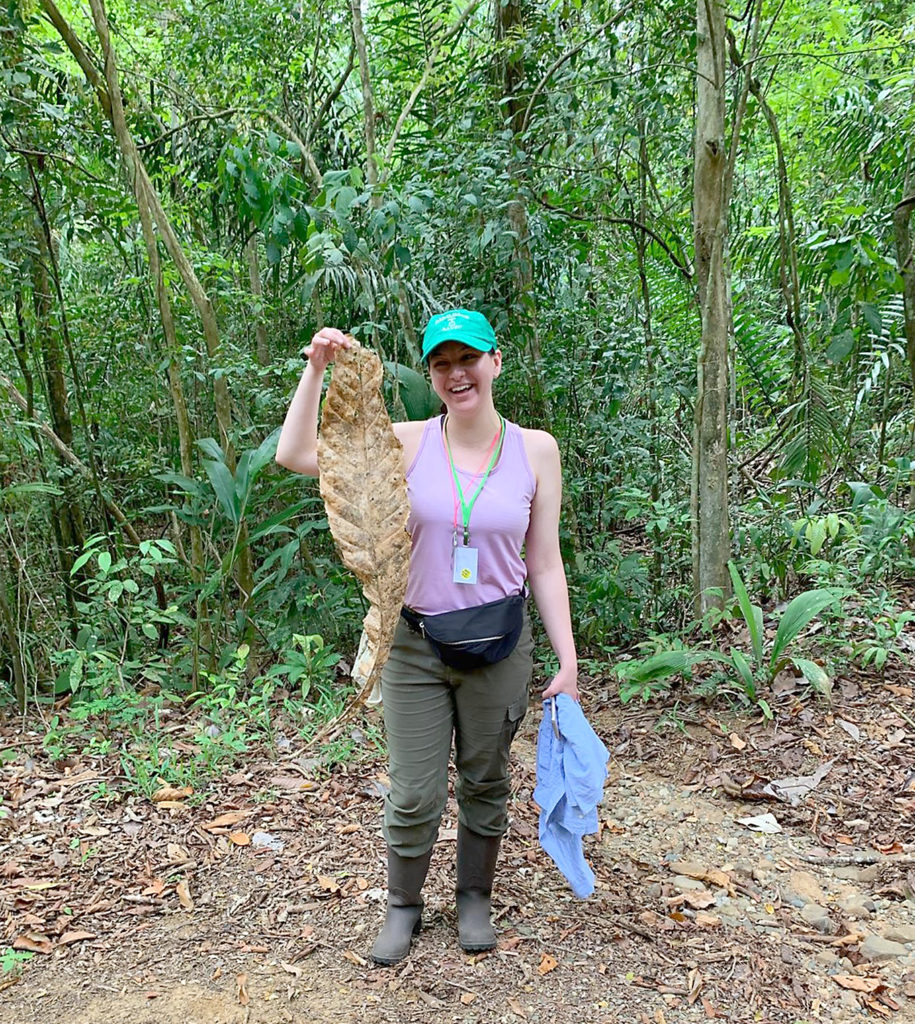
MNB: At what university do you study, what exactly are you studying, in what year are you, and how many biology field courses have you taken/are you planning to take?
SKM: My name is Stephanie Murray, and I recently graduated from The Ohio State University with my master’s degree in Entomology. I earned my bachelor’s degree in 2017, studying Biology at California University of Pennsylvania. I have taken two field courses: one in Madagascar as an undergraduate student, and one in Panama as a graduate student. I plan to continue field work in Panama this year as a Research Associate at The Ohio State University.
MNB: Are field courses dispensable or important when studying biology?
SKM: I think it’s important to offer optional field courses to biology students, as it offers a complete image of the research questions and topics that inspire many students to join the scientific community. For example, who in the scientific community has not been inspired by a David Attenborough film? Even if your research goals don’t involve world travel or tropical research, many local questions cannot be answered without the collection of local data and specimens.
I’ll use an insect example: If a student is interested in questions regarding genetic differences of native ant or bee populations, that student will need to collect field specimens before performing a genetic analysis. As an undergraduate, it’s not uncommon to learn only the laboratory components of answering a research question. By taking a field course, students can experience a research project from start to finish. Having a complete understanding of what some research questions entail not only prepares students for research and critical thinking, but it can also be a defining experience for their career paths. Some students will love field research just as much as they had expected, while others will learn that they hate it.
MNB: Compared with other courses, how much time does it take you to prepare for and to do follow-up work of field courses, and do you find field courses less or more challenging?
SKM: Preparation for a field course can be a huge time and monetary commitment. Depending on your field site, you will have to invest in appropriate clothing, field supplies, personal items, medication (over the counter or prescription) and maybe even vaccinations. You may also have to put a great deal of time and thought into preparing and packing any research items you may need. Some field sites will be stocked with equipment, while others are just a place to sleep and eat. You will then need to be sure that you can safely pack these items if travelling by plane.
Follow-up work typically entails a final report of your results and what you learned during the field course. This will likely require some statistical analyses and scientific writing. The upfront commitment and preparation can make field courses more challenging, however, knowing the ins and outs of your field project makes writing a report much easier and much more satisfying.
MNB: Do you engage less or more in the topics of field courses than in those of lectures and laboratory courses?
SKM: In my experience, field courses are much more engaging because they offer a completely hands-on experience. Typically, you and your classmates gather for a few seminars or discussions throughout the trip, however, most of your time is spent planning and performing your field work. This experience forces you to be adaptable to field conditions and quickly learn from the mistakes you made in previous days.
Laboratory courses are also a hands-on experience, but these experiences are well orchestrated and predictable. In the field, there is often little direction—especially when students have the opportunity to tailor their field research to their own interests. Having little instruction and being exposed to unfavorable field conditions teaches students to make the most of the time they have in the field.
MNB: Do you know how the fraction of courses taught in the field among all biology courses has developed over time at your university?
SKM: I’m unsure of the fraction of field courses taught at Ohio State over time. I do know that my current supervisor, Rachelle Adams, was hired in 2016 and has since incorporated her Tropical Behavioral Ecology and Evolution course into the curriculum. This course is taught at the Smithsonian Tropical Research Institute in Gamboa, Panama, and was my second field research experience.
MNB: Among all the biology field courses you have taken so far, what were the field sites you liked least and best, and what are the one negative and one positive experience you will remember longest?
SKM: Both field sites I visited were incredible, but the Centre ValBio in Ranomafana, Madagascar was my favorite of the two. The facility is set up for housing, research, and community outreach and education. Research was done in the nearby rainforest, town, and on-site laboratory. The Smithsonian Tropical Research Institute site in Gamboa, Panama is similar, however, laboratory space is off-site from housing and there is much less integration with the local community. Being without lab space and lab equipment during much of my time in Gamboa forced me to be better prepared before my departure and more resourceful during my research time in our housing unit.
While I loved field research and nearly everything about it, the most positive experiences I’ve had were the times spent interacting with residents and other researchers at both sites. As an undergraduate, field research can sometimes feel like an unattainable goal. Having the opportunity to meet other student researchers and many well-established researchers provides a sense of community, inspiration and hope. Additionally, seeing the impact our research has on the local environment and community first-hand really solidifies the importance of field research all over the world.
If I had to choose a negative experience, it would be the moment that I realized I did not want to study primates in the field. As an undergraduate, I was interested in primatology and biological anthropology. These interests led me to study abroad in Madagascar, where my supervisor had studied lemurs for her PhD. During this trip, I quickly realized that running after lemurs was not ideal for me, personally. This was disappointing, but also a defining moment in my career as a researcher. This trip helped me choose my path to entomology—another field that I had a strong interest in. I’m still fond of primates (lemurs especially), however, I channeled my interest in these social creatures into a new-found love for social insects.
Lori Lach, teacher, Australia
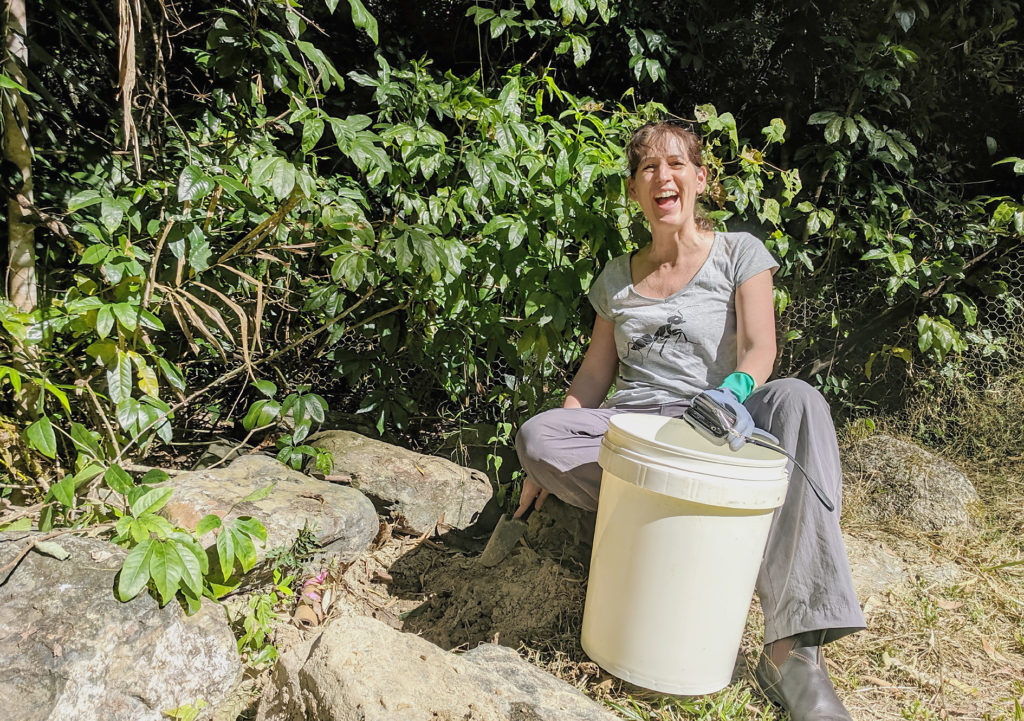
MNB: At what university do you work, what are you specializing in in your research, and how many different biology field courses have you taught?
LL: I’m an Associate Professor at James Cook University in Cairns, Australia. I research insect ecology, and currently most of my projects are on some aspect of invasive social insects and their impacts. For several years, I taught one of the four modules in our full semester field ecology subject. I have made a point of including field work in all of the other biology subjects I teach and have taught in this position (ecology, restoration ecology, biological invasions, terrestrial diversity). We are privileged to have a campus nestled against tropical rainforest and a 15 minute drive to a restored wetland and coastal habitats (and other kinds of habitats within a few hours’ drive), so we don’t need to have whole field courses to incorporate field experiences into our subjects.
MNB: Are field courses dispensable or important when studying biology?
LL: I think field experiences are absolutely essential when studying many disciplines within biology. Part of what we’re trying to teach students is to notice details, to observe, to question, and to hypothesize. You cannot pick-up those lessons from reading about them. Learning by doing is so much more compelling. It also provides opportunities for students to figure out a lot on their own.
I don’t think they need to be immersive experiences (i.e., go to a foreign country or a remote field station) to be valuable, but those kinds of experiences do have other benefits. One of the most popular subjects among our students is a field course we teach in Borneo. For many students it is life-changing. My own experience in a semester-long field study school as an undergraduate student greatly influenced my ultimate career path.
I think the world is generally suffering from a lack of appreciation of the living things around us. If we don’t do what we can to instil some of its value and spark the appreciation and wonder of the outside world in the next generation of biologists, I don’t hold out much hope for recognizing the value of nature in society at-large.
MNB: Compared with other courses, how much time does it take you to prepare for and to do follow-up work of field courses, and do you find field teaching less or more challenging?
LL: I think it ultimately takes less time than preparing for the equivalent time lecturing. We’re fortunate to have excellent technical support staff here though. Of course it can be more challenging because there are elements of the experience that are beyond your control (e.g., weather, snakes).
MNB: Are students less or more engaged in the topics of field courses than in those of lectures and laboratory courses?
LL: Students generally love the field experiences, especially when the logistics are well-organized and the relevance to the subject learning outcomes is clear.
MNB: How has the fraction of courses taught in the field among all biology courses developed over time at your university?
LL: I think most, if not all, of our biology subjects have a field component to them (e.g., a multi-day field trip, or a series of field experiences). Most staff here regard field experiences as being integral to the overall learning experience, so I don’t think there are any plans to reduce them.
MNB: Among all the biology field courses you have taught so far, what were the field sites you liked least and best, and what are the one negative and one positive experience you will remember longest?
LL: As the world’s oldest rainforest, the Daintree is a special place and one of my favourite places in Australia.
One of my most positive experiences was teaching an ant course in Mauritius because the students were so appreciative, and I felt we were really building capacity. (I will add that I had a nursing 5-month old at the time and had to fit in pumping/nursing into the schedule—including in the field—as did one of my colleagues. I mention this because as a society we need to realize that breastfeeding is normal, and because some out there may need to know that, yes, you can make this work for you and your students).
Perhaps my most memorable and not-so-pleasant experience were the late nights spent helping students pick ticks off of freshly killed antelope on a game farm in Kenya as part of a research project investigating parasitoids.
Casey Forster, student, Australia
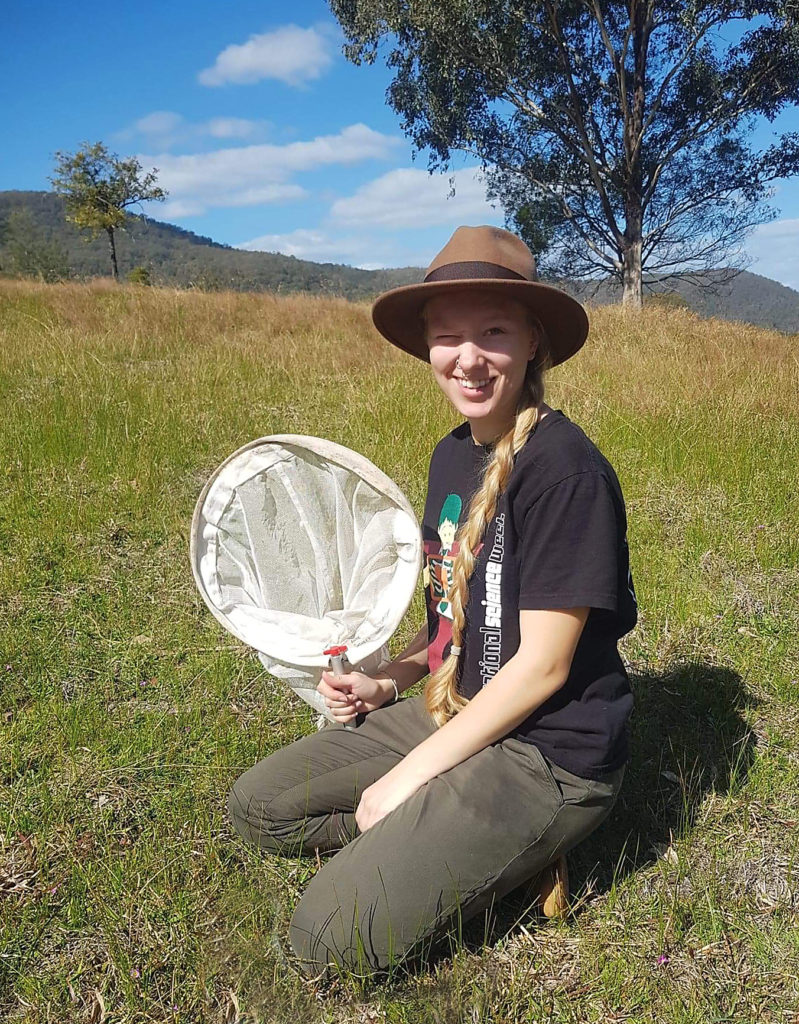
MNB: At what university do you study, what exactly are you studying, in what year are you, and how many biology field courses have you taken/are you planning to take?
CF: I am currently a Masters of Research student at Macquarie University investigating the physiological effects of pesticides on honey bees. I also did my Undergraduate, Bachelor of Advanced Science at Macquarie University, majoring in Biology and Palaeobiology. During my studies I have participated in about 5 or more different units with field course components ranging from single day trips to courses almost entirely done in the field.
MNB: Are field courses dispensable or important when studying biology?
CF: Personally, I found them extremely important for my academic development. I think I would have found going from my undergraduate to my Masters quite a different and far more challenging experience without the knowledge I gained from my previous field courses. Doing field courses prior to my Masters taught me how to best organise myself, recognise my strength and weaknesses in field work and how to work with them. I learnt how to best deal with situations when things don’t go to plan, administration processes, and a range of skills that I am using now more confidently. I also developed the confidence to discuss ideas with peers and academics which is now crucial.
MNB: Compared with other courses, how much time does it take you to prepare for and to do follow-up work of field courses, and do you find field courses less or more challenging?
CF: The time needed for course preparation and follow up greatly depends on the course, how its constructed, and what the learning goals of the course are. For many of my courses there was only a little preparation and reasonable follow up done by us students, and likely a lot of organisation time spent by the person organising the course. I also found the total time required for field course units was usually very similar to that of other units. Only one of my field courses was extremely time heavy in the preparation and follow up, but the purpose of the unit (how my supervisor and myself deliberately designed it) was for me to gain experience in that very process, which I am now very grateful for having. Field courses can, at times, be more challenging, but in a good way, as they make for realistic learning experiences. There can be issues relating to availability, seasonality, weather, and other timing difficulties of certain biological processes. However, this is biology, and the earlier you learn that things don’t always go to plan and that you always need back up plans, the better. Examples of this can be seen in the changes made to research plans in response to the recent bush fires and travel bans from the current pandemic.
MNB: Do you engage less or more in the topics of field courses than in those of lectures and laboratory courses?
CF: I think most people engage and learn easier when the organisms or processes are in front of their eyes as opposed to in a lecture on a slide. I found I engaged creatively and socially more with field courses than with others. I discovered I had more questions concerning not only the course content but also questions about the process of research, collaboration, communication, etc. These additional skills and knowledge helped me better understand not only research but work environments in general.
MNB: Do you know how the fraction of courses taught in the field among all biology courses has developed over time at your university?
CF: Although I do not know the numbers, based on what I have personally experienced and I what I have heard from those around me, there has unfortunately been a decline in the fieldwork courses / field work components of courses. I can imagine they can be a lot of work to maintain but I feel what students gain from them is well worth it. I hope their value will be better recognised and that they are more supported in future.
MNB: Among all the biology field courses you have taken so far, what were the field sites you liked least and best, and what are the one negative and one positive experience you will remember longest?
CF: Of the various field sites I have been to, the sites I liked the most were the Herron island research station, as it is a beautiful place with amazing and diverse life with fantastic research facilities available. Stanwell Tops was also a great place with a range of insects, birds, and plants to study, and we could apply the ecological lessons with our surroundings. One field site that was difficult at times was the area around Lake Keepit. The season we went was extremely hot and we were out for long periods of time, so risk of dehydration and heat stroke were high. However, the worst part was the never-ending bombardment of flies in the field (which caused literal fly nightmares for us!). One positive experience I will remember is the friendships that I made, the networking experience, and the confidence I developed in my own abilities and opinions. One negative experience I will remember is learning that not everyone is willing to put in the same amount of effort into group work. Even through this was a very negative experience it was also an important lesson to learn.
Melanie Rothmaier, student, Germany
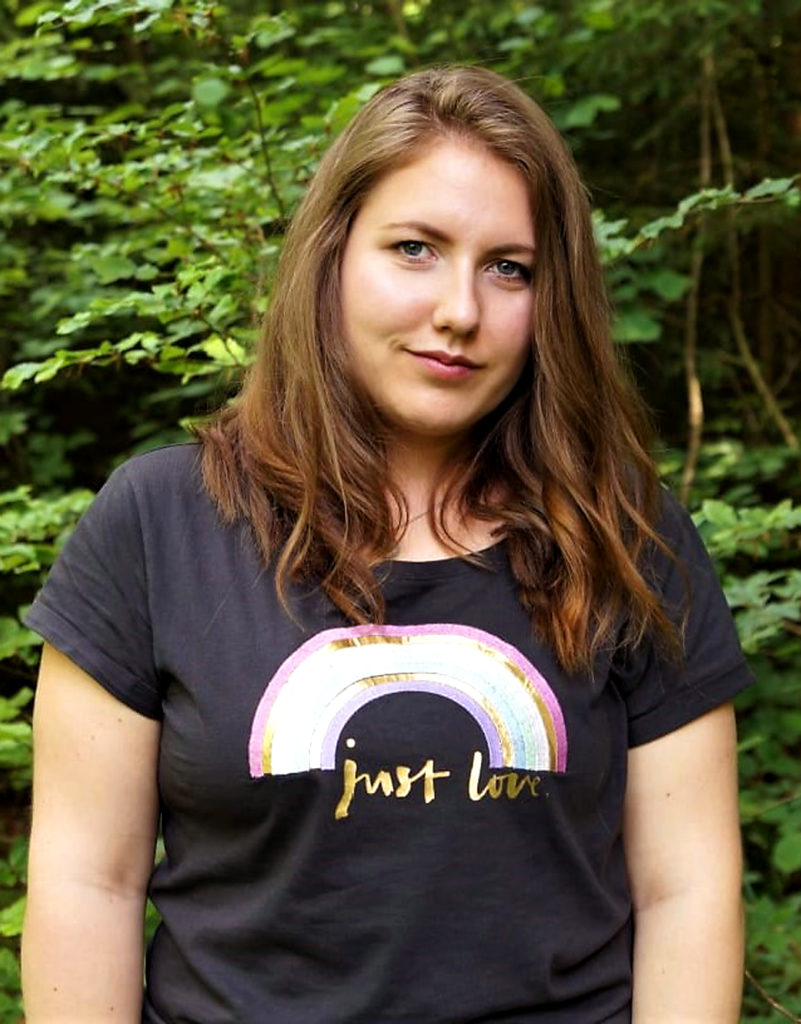
MNB: At what university do you study, what exactly are you studying, in what year are you, and how many biology field courses have you taken/are you planning to take?
MR: I study at the University of Bayreuth, I have a Bachelor in Biology and am now in the third semester of my Master degree in Molecular Ecology. I have taken seven field courses.
MNB: Are field courses dispensable or important when studying biology?
MR: Field courses are very important in studying biology to learn scientific work not only in theory but also in practice. In addition, field courses are important in order to learn methods more easily. In my opinion a field course with a previous theoretical part is a good learning strategy and the best preparation for students who might want to work in the field one day.
MNB: Compared with other courses, how much time does it take you to prepare for and to do follow-up work of field courses, and do you find field courses less or more challenging?
MR: Field courses are more challenging and do take more preparation time. They also need more follow-up work compared with other courses, but for me field courses make complex topics easier to understand and quicker to study, which saves me a lot of time in the end.
MNB: Do you engage less or more in the topics of field courses than in those of lectures and laboratory courses?MR: I definitely engage more in field courses. In fieldwork you can find answers to questions which would not be addressed in the lecture at all.
MNB: Do you know how the fraction of courses taught in the field among all biology courses has developed over time at your university?
MR: I do not know how the fraction has changed.
MNB: Among all the biology field courses you have taken so far, what were the field sites you liked least and best, and what are the one negative and one positive experience you will remember longest?
MR: I enjoyed all of my field courses, especially the aquatic courses, and I cannot think of one I did not enjoy. The weather definitely can affect the experience: taking samples in the rain is not fun, for example. One positive experience was having my very own small project in the field for the first time.
Jonna Kulmuni, teacher, Finland
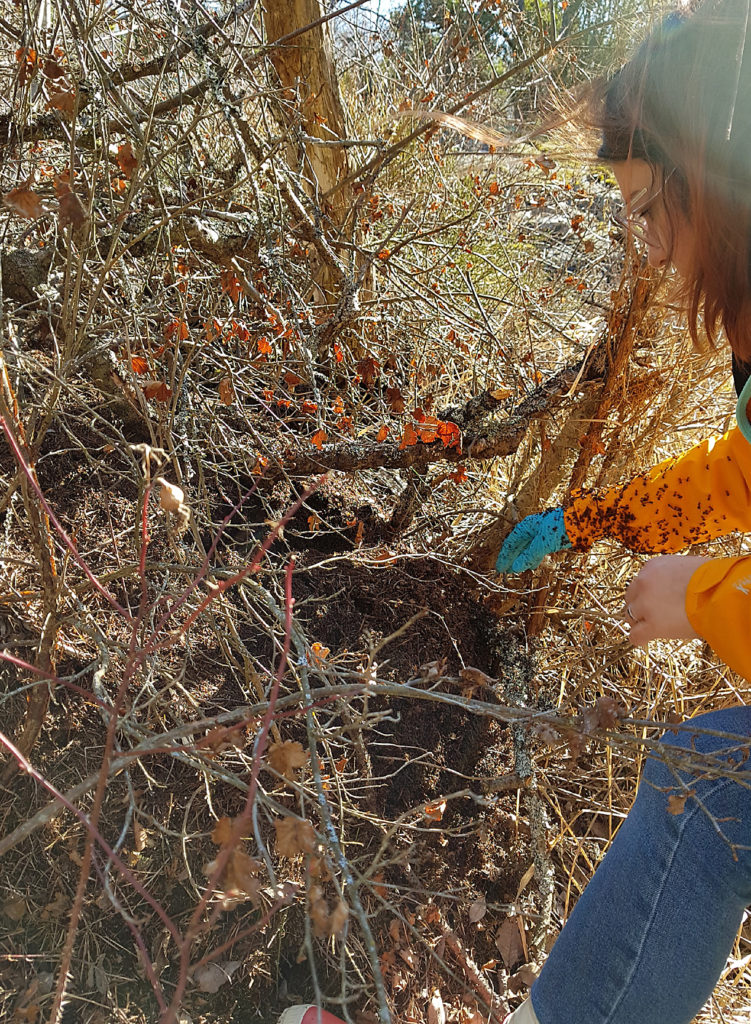
MNB: At what university do you work, what are you specializing in in your research, and how many different biology field courses have you taught?
JK: I work at the University of Helsinki, Finland and in Tvärminne Zoological station. My group studies speciation and hybridization in mound-building wood ants utilizing genomics, behavioral experiments and long-term field collections.
I have never taught at field courses, but as a student I took several field and laboratory courses. During the time I was studying, the curriculum was not so fixed and it was possible to mix and match both ecology and genetics. I am grateful for this as skills acquired through both lab and field courses are now the corner stone of my research. Having both of these skills allows me to collect better data and answer research questions from multiple angles.
MNB: Are field courses dispensable or important when studying biology?
JK: Field courses are indeed indispensable. There you learn skills of data acquisition and planning experiments, skills that are vital for doing science. You cannot replace hands-on experience with watching videos from youtube. It is the same as with labwork. Would you say you are skilled in producing RNAseq libraries by watching a video on it! No. It is the hands-on experience, possibility to do mistakes and learn from them that is the valuable part of field courses.
MNB: How has the fraction of courses taught in the field among all biology courses developed over time at your university?
JK: There is a trend of decreasing hands on teaching, less field courses and less laboratory courses.
Pamela Pairo, student, Argentina
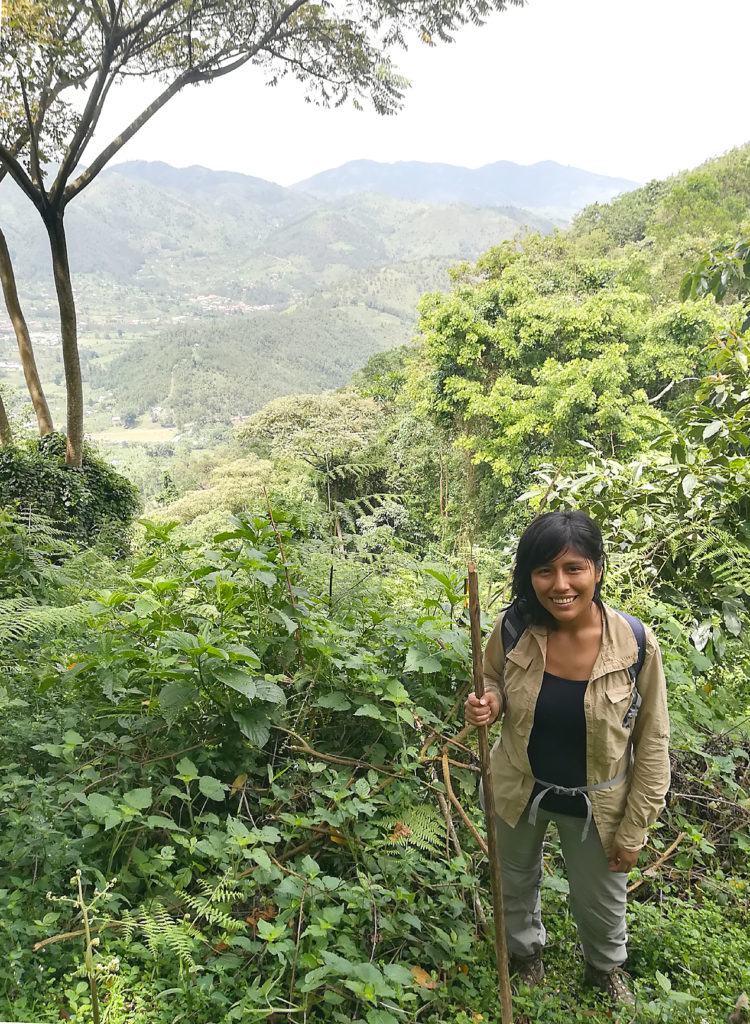
MNB: At what university do you study, what exactly are you studying, in what year are you, and how many biology field courses have you taken/are you planning to take?
PP: I’m PhD student at Laboratorio de Ecologia de Comunidades y Macroecología (ECOMA), University of Buenos Aires, Argentina. I’m studying the responses of biodiversity (taxonomic and functional diversity) along a eucalypt forest cycle in a grassland context using a multitaxa approach (plants, birds and ants). I had fieldtrips in each ecology course during my undergraduate studies. In addition, I took two field courses: Ant Course in French Guiana and other in Orielton Field Centre in United Kingdom.
MNB: Are field courses dispensable or important when studying biology?
PP: Yes, they are important! Especially if you want to focus on ecology. In my opinion, learning that is achieved in the field is important not only because you learn about collecting methods and to use identification keys, but also new research questions may arise.
MNB: Compared with other courses, how much time does it take you to prepare for and to do follow-up work of field courses, and do you find field courses less or more challenging?
PP: It’s important to spend time in preparing the materials and equipment necessary for the fieldwork and not forget anything. Also, during the field course, take notes about what you think could help when you need to analyze data and also label the samples correctly. The challenging of field courses is that you could apply what you’ve learned in classes and more.
MNB: Do you engage less or more in the topics of field courses than in those of lectures and laboratory courses?
PP: I prefer to take field courses because it includes lectures and fieldtrips. However, lectures and laboratory courses are important for biologists, too.
MNB: Do you know how the fraction of courses taught in the field among all biology courses has developed over time at your university?
PP: Each ecology course includes a field trip in my university (a half of the career) but I think that it’s necessary to include more field courses.
MNB: Among all the biology field courses you have taken so far, what were the field sites you liked least and best, and what are the one negative and one positive experience you will remember longest?
PP: One of the best courses that I took was the Ant Course in French Guiana at the stunning Nouragues Nature Reserve. I learned a lot about neotropical ants, sample techniques and met many enthusiastic students around the world. The only “bad” thing was that I was stung by a Paraponera clavata but I could collect some specimens.
Neelkamal Rastogi, teacher, India
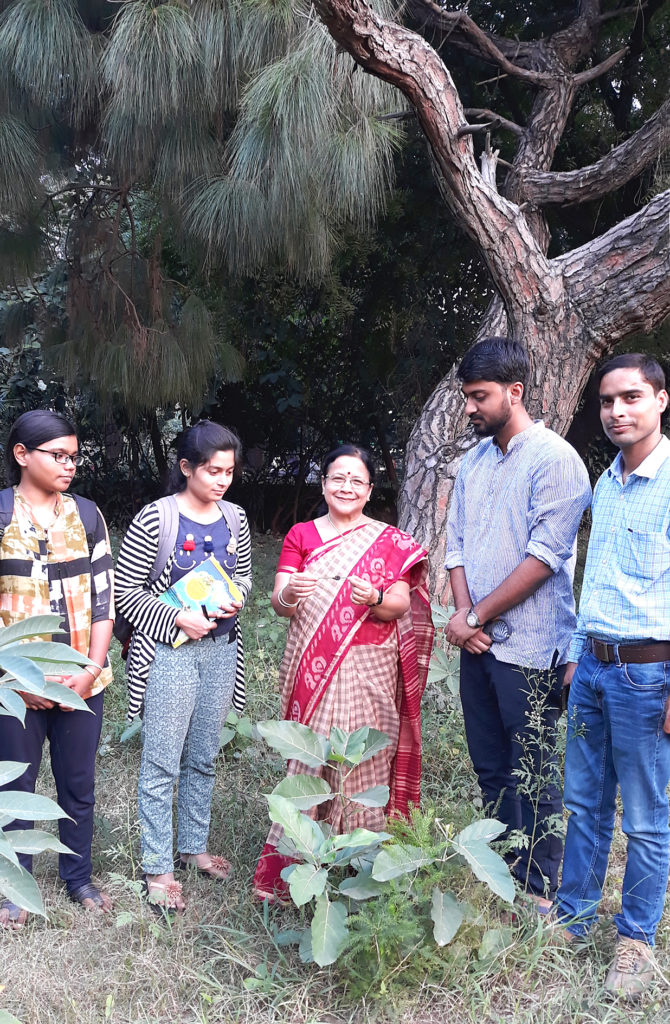
MNB: At what university do you work, what are you specializing in in your research, and how many different biology field courses have you taught?
NR: I am working at Banaras Hindu University located in Varanasi, India. My research work is in the area of Insect Behavioural Ecology. I have been associated with one field biology based course at the undergraduate level and two at the post-graduate level. With one exception at the undergraduate level where the students of VI semester submit a report after a short outstation field tour, all field-related studies are conducted locally. We also have some field-based practical classes as part of the environmental biology and animal behaviour courses, at both the levels.
Field-based project work in the Animal Behaviour core paper, where each student of M.Sc. final year conducted field observations of a specific behavioural aspect of an animal of his/her choice and submitted the project report, constituted a part of the syllabi for ~ 20 years. Since we have a large campus spread over an area of 1,300 acres, with a high diversity of plants, arthropods and birds, most students selected the focal species from those found within the campus itself. Some of the more enthusiastic ones would opt to study less commonly occurring animals such as the river bank nesting swifts or endangered white-backed vultures found in other parts of the city.
At present (since 2010) students of M.Sc. IV Semester submit a dissertation in the area of their special paper. Students of Entomology special paper, doing their dissertation work under my supervision, do a field study.
MNB: Are field courses dispensable or important when studying biology?
NR: Undoubtedly, field-based courses are crucial for understanding biology since they strengthen the foundation of the basic biological concepts. They are important to get an idea of biology, as it exists in nature and to develop an interest in the subject. In the field, students get first -hand knowledge of many aspects of biology, particularly about functional biology, ecological processes, behavioural interactions etc.
In the natural environment, we have organisms which engage in intra- and inter-specific interactions. Basic knowledge at the organism level is essential to probe deeper at the level of the cell or molecules. To get novel ideas and to address sound questions in order to do meaningful laboratory – based research, it is essential for a young scientist to be aware of what is actually happening in nature!
MNB: Compared with other courses, how much time does it take you to prepare for and to do follow-up work of field courses, and do you find field teaching less or more challenging?
NR: It is challenging, time consuming but extremely fascinating.
MNB: Are students less or more engaged in the topics of field courses than in those of lectures and laboratory courses?
NR: Undoubtedly, they get more involved in such courses and some of them later opt for research in the areas such as conservation biology, evolutionary biology etc.
MNB: How has the fraction of courses taught in the field among all biology courses developed over time at your university?
NR: It has continued, as already detailed above.
MNB: Among all the biology field courses you have taught so far, what were the field sites you liked least and best, and what are the one negative and one positive experience you will remember longest?
NR: I have taken students only to local field sites. These field studies have dealt with varied aspects of zoology: bird diversity and behaviour, individual and social behavioural patterns of the rhesus monkeys, aquatic insect diversity, insect pollinators, insect-plant associations, etc. One remarkable event which I still recollect was that of an altruistic behaviour shown by a rhesus monkey to help a crow. It tried really hard to free a crow which had got entangled in a broken kite string caught on the branches of a tall peepal (Ficus religiosa) tree. Unfortunately despite its persistent attempts (lasting for almost an hour) to bite and cut the string and to shake the branches, it could not free the hapless bird! I have a kaleidoscope of interesting memories of behavioural interactions among many species of birds, arthropods and many other interspecific interactions. However, the best part was always in the form of increased interest and enthusiasm for the subject in the students!
Lívia Pires do Prado, student, Brazil
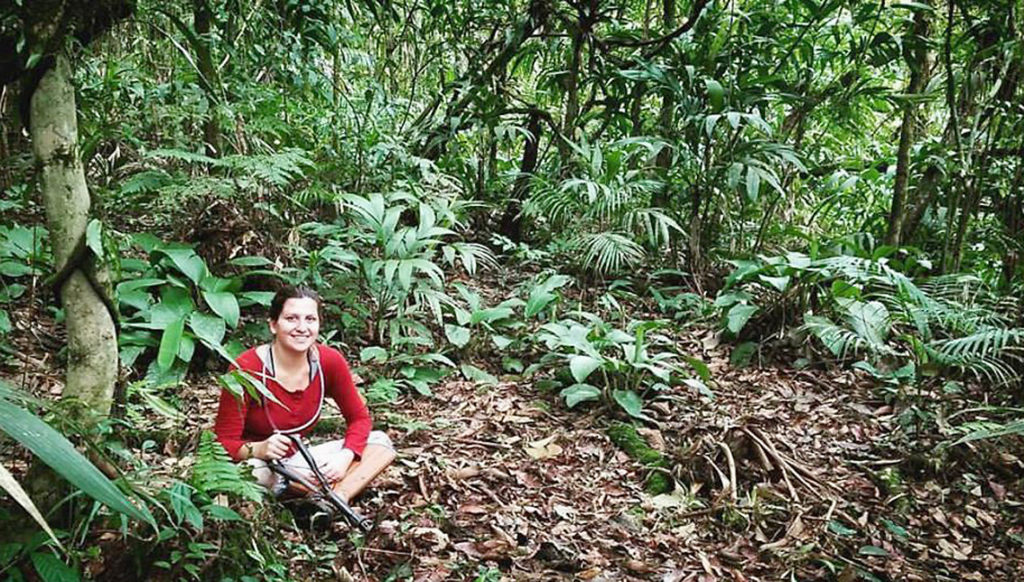
MNB: At what university do you study, what exactly are you studying, in what year are you, and how many biology field courses have you taken/are you planning to take?
LPdP: I am a third-year PhD student at the Universidade Federal do Pará and the Museu Paraense Emílio Goeldi/MPEG (Brazil), working with systematics of the genus Megalomyrmex, with Rogério R. Silva, my advisor. I also develop part of my PhD at the Ohio State University and the Museu de Zoologia da Universidade São Paulo, where my co-advisors, Rachelle Adams and Carlos Roberto Brandão work.
I have already taken eight field courses. I would still like to participate in two courses. One of which is the “Tropical Behavioral Ecology and Evolution in Panama”, coordinated by Rachelle Adams. This course would be interesting for collecting and making field observations of Megalomyrmex species. I would also be able to access a region where a large portion of newly discovered species have been collected (mainly for projects led by John Longino). I would also like to take the field course offered by my University called “Ecology and Ethnoconservation in the Kayapo Indigenous Land” coordinated by Juarez Pezzuti and Pedro Peloso. This course is taught within an indigenous village, and combines topics of ethnobiology, anthropology, and conservation of the Amazon. In this subject, we discuss our project from a conservation point of view for the Amazon and ethnobiology, which are points that I consider important for my training as a scientist and science communicator.
MNB: Are field courses dispensable or important when studying biology?
LPdP: Field courses are essential. For students without field experience, these courses are important for learning a large amount of information in a short period of time (e.g. collection methods, photography techniques, field notebook preparation, and identification of specimens in nature). For people with experience in fieldwork, these courses provide opportunities to learn other ways of doing fieldwork. We often reproduce what we learn within our laboratories and these courses enable us to look at other variables and do things in other ways. If we look back on the development of fieldwork skills has been extremely important and influential in shaping the leading scientists. Charles Darwin is the greatest example of this!
MNB: Compared with other courses, how much time does it take you to prepare for and to do follow-up work of field courses, and do you find field courses less or more challenging?
LPdP: The time I have spent preparing for these courses often varies, but I usually prepare months in advance. The amount of time varies depending on locations, collection permits required, course duration and costs involved. Overall, I believe field courses are more challenging because they often take place in locations where the chances of returning are slim, so it’s always necessary to make the most of the opportunity. Another point is that most of the time, there is no internet connection in these places, requiring prior planning.
MNB: Do you engage less or more in the topics of field courses than in those of lectures and laboratory courses?
LPdP: For a long time, I’ve always been more focused on field course topics, but in the last year, I’ve been trying to balance this. I have accumulated a lot of data through field courses and expeditions. The balance between field courses, species identification, lectures, and laboratory courses are important for developing a theoretical basis, which will help me get better results in my research.
MNB: Do you know how the fraction of courses taught in the field among all biology courses has developed over time at your university?
LPdP: I don’t know exactly, but my university has historically invested in field courses, probably because it’s located in the Amazon. An important milestone for the field courses was the inauguration of a base for conducting scientific research (in 1993), the Scientific Station Ferreira Penna, located in the Caxiuanã National Forest (Pará, Brazil). This scientific station promotes field courses, studies on sociobiodiversity, and experiments every year. In addition to these courses, most subjects include practical classes in the workload, which is one reason I chose to do my doctorate here.
MNB: Among all the biology field courses you have taken so far, what were the field sites you liked least and best, and what are the one negative and one positive experience you will remember longest?
LPdP: There is no course I liked the least, all were really very good. I really enjoyed a field course I took part in at the Itirapina Ecological Station of Universidade Federal de São Carlos, Brazil. Up until then, I had participated in expeditions in the Amazon and the Atlantic Forest, and this course gave me the first contact with the Brazilian Cerrado, which has completely different ecological dynamics.
Negative experiences include delays, as sometimes people take extra time to wake up or get organized, thus, precious fieldwork hours are lost. One of the positive experiences I had was when some of my colleagues and I came up with the idea of collecting our samples from riverbank trees. We took a small boat and a beating tray to sample these trees. The boat was very small, and we were four people, so it was hard to maintain stability. However, it was one of the most amazing experiences, and many of the species we collect had no idea what could be.
Zhenghui Xu, teacher, China
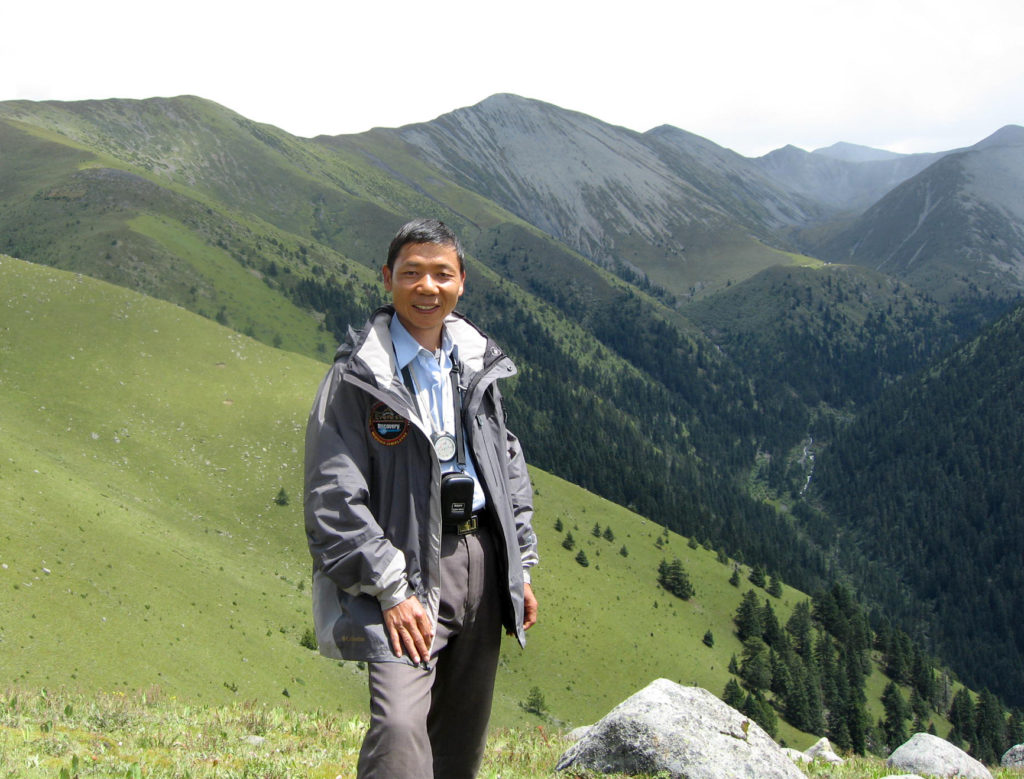
MNB: At what university do you work, what are you specializing in in your research, and how many different biology field courses have you taught?
ZX: I work at Southwest Forestry University. I’m specializing in myrmecological research. And I have taught two biology field courses, Insect Taxonomy and Theory and Practice of Biodiversity.
MNB: Are field courses dispensable or important when studying biology?
ZX: Surely, field courses are important when studying biology. The students have a chance to observe living organism, measure species diversity, and collect insect specimens in the field courses.
MNB: Compared with other courses, how much time does it take you to prepare for and to do follow-up work of field courses, and do you find field teaching less or more challenging?
ZX: Compared with other courses, it takes about 10% of my time to prepare for and about 50% of my time to do follow-up work of field courses, and I find field teaching more challenging.
MNB: Are students less or more engaged in the topics of field courses than in those of lectures and laboratory courses?
ZX: Yes, the students are more engaged in the topics of field courses than in those of lectures and laboratory courses.
MNB: How has the fraction of courses taught in the field among all biology courses developed over time at your university?
ZX: The fraction of courses taught in the field among all biology courses has developed since 2019 at our university, about 15% time increased in the field course.
MNB: Among all the biology field courses you have taught so far, what were the field sites you liked least and best, and what are the one negative and one positive experience you will remember longest?
ZX: Among all the biology field courses I have taught so far, Xishuangbanna, located at south Yunnan Province of China, is the field site I liked best, and the field course at this site was the positive experience I remember longest because there are endless ant specimens and species. In contrast, Dulongjiang, located at north Mt. Gaoligongshan, western Yunnan Province of China, is the field site I liked least, and the field course at this site was the negative experience I remember longest because it raining day after days.
Marianne Azevedo Silva, student, Brazil
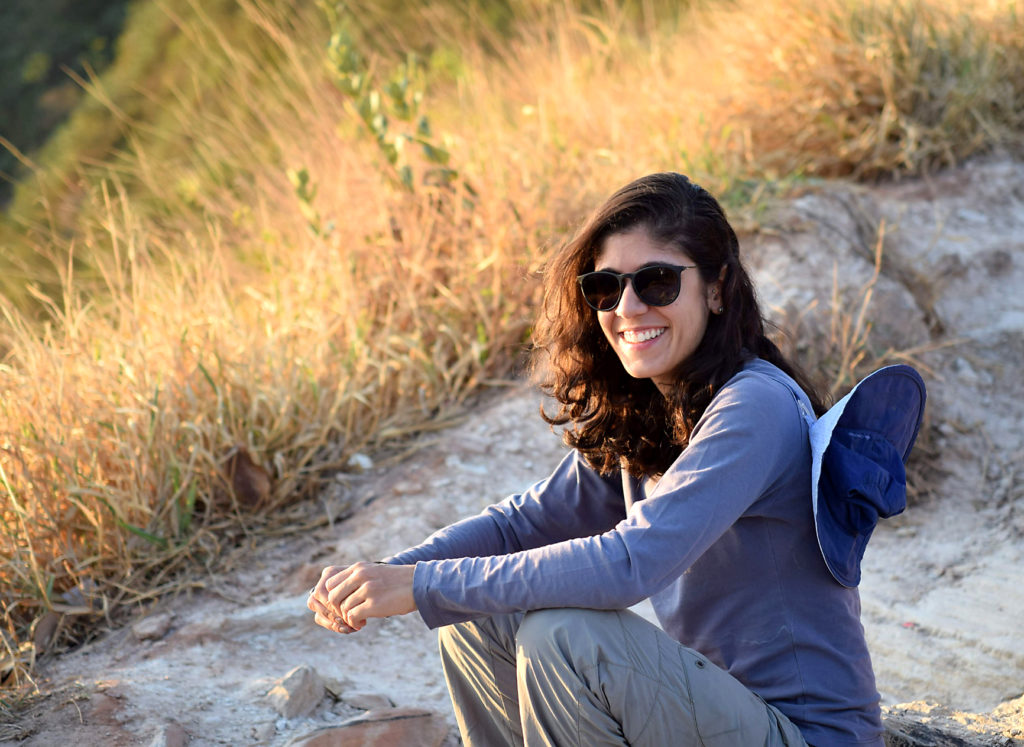
MNB: At what university do you study, what exactly are you studying, in what year are you, and how many biology field courses have you taken/are you planning to take?
MAS: I have just started the third year of my PhD in ecology at University of Campinas – Brazil. The focus of my research is to understand the interplay between intraspecific genetic diversity and biotic and abiotic traits. For this purpose, I use arboreal ants as biological model. Specifically, I seek to unveil how community composition influences (and are influenced by) ant intraspecific genetic diversity and if abiotic factors are acting as selective pressures in arboreal ants. I attended two field courses in Cerrado (Brazilian savanna): one as an undergraduate student and the other one during the Master program. Indeed, I would like to take another one at some rainforest site.
MNB: Are field courses dispensable or important when studying biology?
MAS: I think field courses are essential for all biologists given they make possible to get close to biological systems in nature. Additionally, during field courses we are trained to think scientifically: observing nature, making interesting questions and hypotheses and testing them with a good methodology. Finally, we are living the era of big data and computational model, with researchers increasingly getting away from their biological systems. Therefore, making field incursions as student is a way to highlight the importance of knowing nature, habitat, natural history and ecology of organisms.
MNB: Compared with other courses, how much time does it take you to prepare for and to do follow-up work of field courses, and do you find field courses less or more challenging?
MAS: It doesn´t take so much time to prepare ourselves for field courses. However, these courses may last a month of really challenging work.
MNB: Do you engage less or more in the topics of field courses than in those of lectures and laboratory courses?
MAS: I think the engagement is similar. The difference is regarding intensity. During field courses, we spend all the days making science (thinking in projects, collecting, analyzing data and writing reports). There are few moments for relaxing or other activities.
MNB: Do you know how the fraction of courses taught in the field among all biology courses has developed over time at your university?
MAS: In Brazil, we are facing a huge politic and economic crisis, with significant losses in education investments. Consequently, there is few or any resources for field courses, which have not been offered as often as before.
MNB: Among all the biology field courses you have taken so far, what were the field sites you liked least and best, and what are the one negative and one positive experience you will remember longest?
MAS: I have taken field courses only in Brazilian savanna and it was fantastic! I think the best experience is related to learn how to make science, which also includes working in collaboration. The negative aspect is the stress: working many hours per day, with few moments to relax.
Corrie S. Moreau, teacher, United States of America

MNB: At what university do you work, what are you specializing in in your research, and how many different biology field courses have you taught?
CSM: My lab is at Cornell University and we specialize in the evolution of ants and their microbiomes. I am a regular instructor on the field-based Ant Course, which is organized by Brian Fisher and is taught in a different location around the world. I was also a teaching assistant for many entomological courses with field components as a graduate student.
MNB: Are field courses dispensable or important when studying biology?
CSM: Science education is going through a transformation from the static lecture course to active learning. But, I would argue that field-based courses or those with field trip components are the original “flipped classrooms” and are essential to learning about the natural world. There are just some things you cannot learn through lectures of online content.
MNB: Compared with other courses, how much time does it take you to prepare for and to do follow-up work of field courses, and do you find field teaching less or more challenging?
CSM: Of course the time to prepare is more, but students connect with the theory and lectures more readily when they have seen the principles first hand. For this reason, the additional investment in time is worth the effort.
MNB: Are students less or more engaged in the topics of field courses than in those of lectures and laboratory courses?
CSM: Students connect best with lectures when there is context, whether it is a laboratory or field based related activity. Science is a hands-on process, so having students actively engage in observations and data gathering helps them connect to the material they learn in lectures and books.
MNB: How has the fraction of courses taught in the field among all biology courses developed over time at your university?
CSM: On a whole, field-based courses are decreasing, although there are exceptions. Many of the -ology courses still have field and curation components, which is a strong reason why universities should be reinvesting in -ology courses. Especially as we are approaching a biodiversity crisis, we need more people with familiarity of the natural world to be able to make a difference.
MNB: Among all the biology field courses you have taught so far, what were the field sites you liked least and best, and what are the one negative and one positive experience you will remember longest?
CSM: I can’t think of a single field site I have not learned from so even if some are more pleasant than others the point of field experiences during courses is to learn. So ultimately, they are all valuable visits. I would argue we should all just get outside more!
Natalia Ladino, student, Brazil
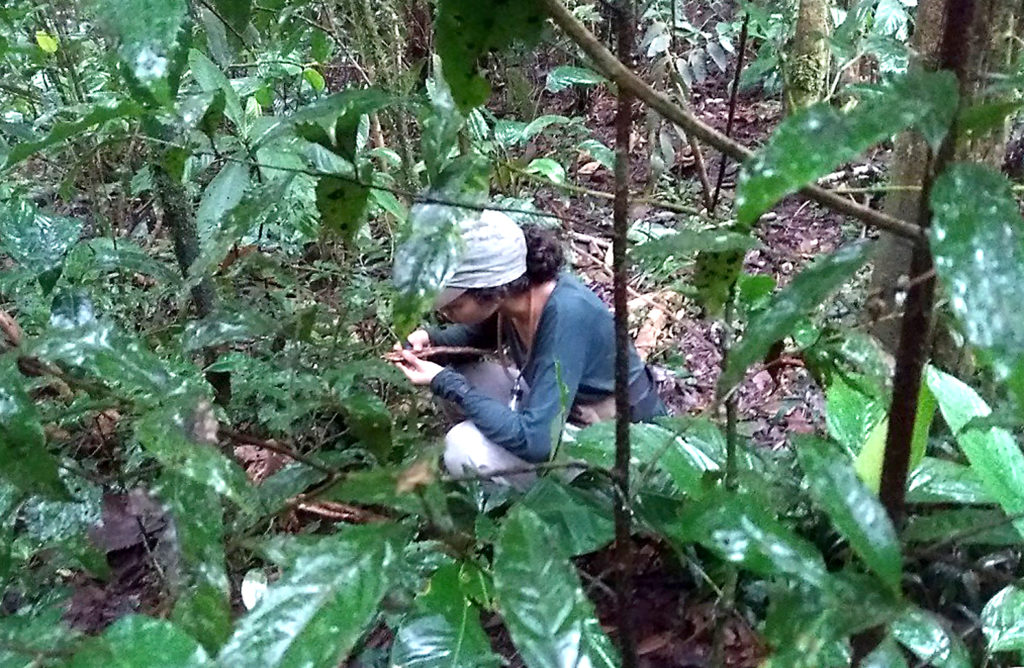
MNB: At what university do you study, what exactly are you studying, in what year are you, and how many biology field courses have you taken/are you planning to take?
NL: I am a first year PhD student of Entomology at the Universidade Federal do Paraná (UFPR), Curitiba, Brazil. I am currently working on the systematics and biogeography of the amblyoponine ant genus Prionopelta.
During my undergraduate formation in Colombia, I went to the field frequently, because my university, Universidad de los Llanos, was in a very biodiverse region, the Colombian Llanos, and Biology was a new program there. After I realized that I was interested and amazed by myrmecology and taxonomy, I had the opportunity to continue my academic career precisely thanks to a field course in Brazil, which gave me the opportunity to start my M.Sc. in my current university. In Brazil, I have had the opportunity to be a student and teacher of field courses, and I am surely interested in attending many more.
MNB: Are field courses dispensable or important when studying biology?
NL: Field courses are important when studying biology. They allow us to be in contact with the reality of nature and its processes, out of the apparently controlled routine that the laboratory or electronic devises and programs may offer; they can be great scenarios to generate questions or discussions, and useful to see the applicability of what we study.
MNB: Compared with other courses, how much time does it take you to prepare for and to do follow-up work of field courses, and do you find field courses less or more challenging?
NL: Frequently, field courses are given less importance than they actually have. They are not that common as scientific dissemination events, and have different purposes.
For me, the preparation will depend on the type of course and the content, in order to prioritize the things that I have to improve before attending it. Sometimes, a good theoretical component is needed to really enjoy the course, or a good physical condition…it depends on the scope and the target audience.
In general, I believe that the field courses are challenging, because regardless of their nature, they test skills and knowledge that we have been incorporating, that are generally required in a short window of time.
MNB: Do you engage less or more in the topics of field courses than in those of lectures and laboratory courses?
NL: Recently I have attended more events such as symposia or congresses. I have the impression that the offer of field courses is not so high, but I may be wrong. Anyways, I like theoretical-practical courses much more, because I’m a little shy.
I feel that much can be learned from a course with that format, with classes given by teachers/students and practical activities. I believe that a discussion scenario after a day of field work and a class strengthens critical thinking, and makes the learning process more dynamic.
MNB: Do you know how the fraction of courses taught in the field among all biology courses has developed over time at your university?
NL: As far as I know, at UFPR there are mandatory and optional disciplines with components dictated in the field throughout the biology program. In fact, I have been monitor and teacher of undergraduate students during the discipline “Biologia de Campo” (Field Biology) and the “Curso de Entomologia” (Entomological Course) and it has been a fantastic experience.
In the postgraduate program there is a course with a similar format called “Entomogia de Campo” (Field Entomology), which has been present since the very beginning of the program and it seems crucial in the training of entomologists, even more in Brazil, that breathes biodiversity.
I consider that I was very privileged during my undergraduate degree at the Universidad de los Llanos. From the first semester we have disciplines with practical components in the field. The biology program has five years in which there are two or three courses by year that have a strong field component, and I think that all that helped a lot in my formation as a biologist.
MNB: Among all the biology field courses you have taken so far, what were the field sites you liked least and best, and what are the one negative and one positive experience you will remember longest?
NL: I cannot quote a place that I liked less than another, I am always fascinated by all the places that biology has allowed me to know. I can remember two courses in particular. One in Colombia, and another in Brazil.
In 2015, the University of Florida and ICESI offered a field course, “Curso de Campo-Diseño de Investigación” in a beautiful biological station at Valle del Cauca, that allowed me to meet people from several places in and out from Colombia, and very different ways of making science.
I attended the course with a good friend of mine and we really enjoyed it. The bad thing is that there was a “bloom” of chikungunya in my hometown, and just at the time of traveling to take the course I got sick, so the long mountain walks were difficult. However, that did not prevent me from doing the activities … which left sequels until today!
The course “Formigas do Brasil – Edição Amazônia” (Ants of Brazil – Amazon Edition) was my gateway to this country, which I am absurdly in love with. It was held in the state of Acre, at the Universidade Federal do Acre (UFAC). It also allowed me to meet wonderful people with whom I am in touch until now, and I learned a lot about morphology, processing, and identification of ants.
I’ll never forget that the field teacher in my group was Dr. John Lattke, and for me it was amazing to have close someone from whom I had read so much, and it is impressive to see him become another “kind-off ant” in the forest. As a woman in science, the talks of Drs. Carla Ribas and Emília Albuquerque were inspiring for me. It was where I met my current advisor, Dr. Rodrigo Feitosa, one of the biggest names in myrmecology of Latin America. He has been such an inspiration for me since the first day.
However, the arrival and departure from Brazil was a bit complicated. I did not speak any Portuguese, and I traveled by land from Lima, Peru, to Acre. I remember that in my first night in Brazil I had to spend it in a narrow room inside a bakery, and I will never forget that when I returned, also spent most of the night sitting outside the migration post in Iñambarí, at the Peruvian Amazon, in the middle of a massive and impressive nuptial flight of the remarkable ant Camponotus mirabilis.


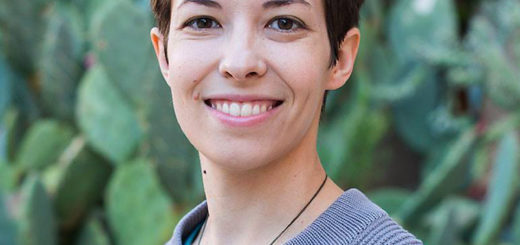
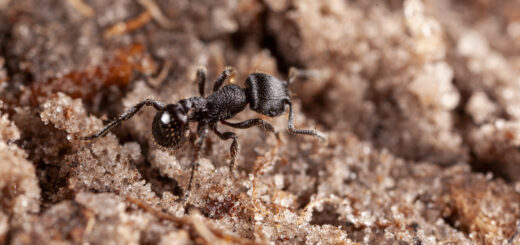
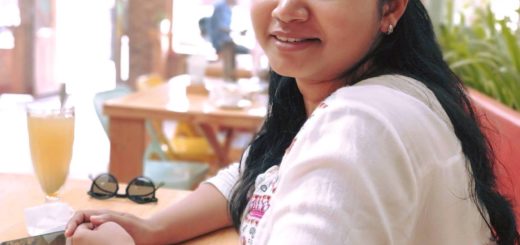
Recent Comments